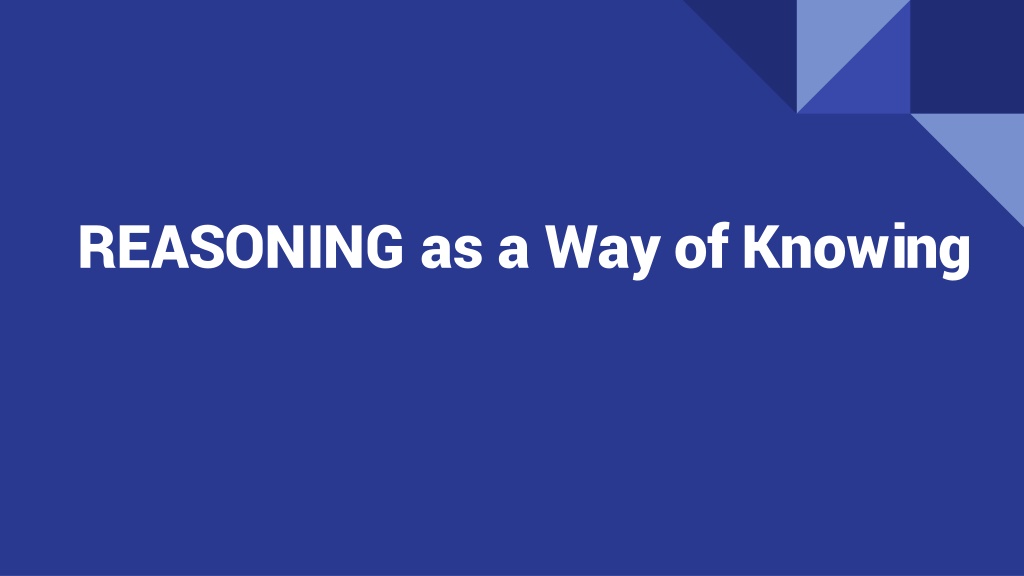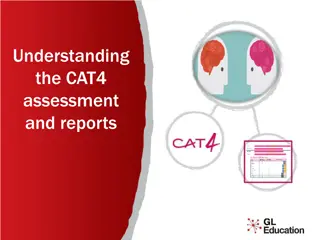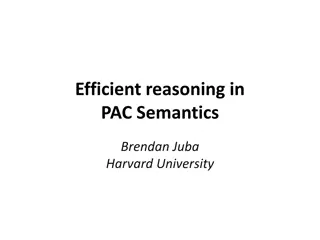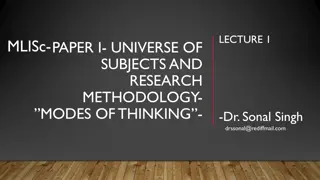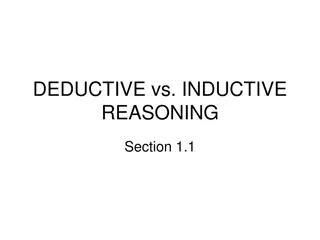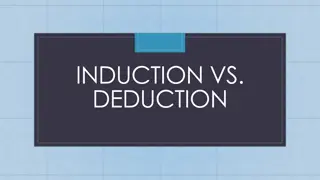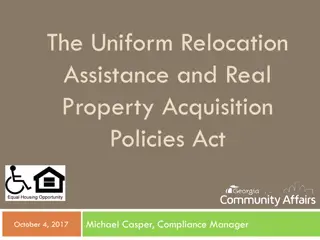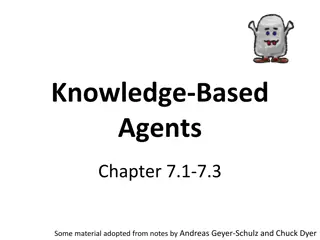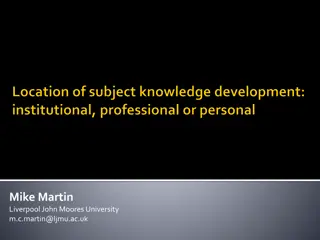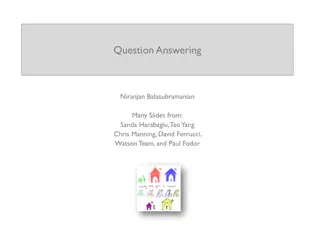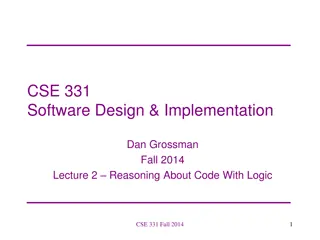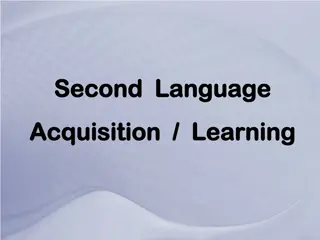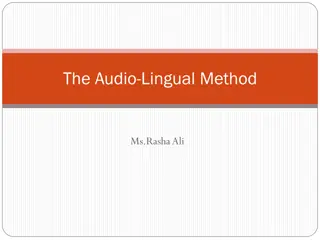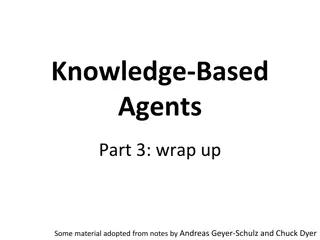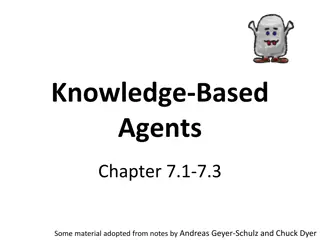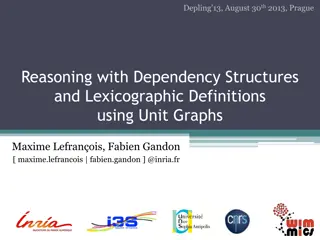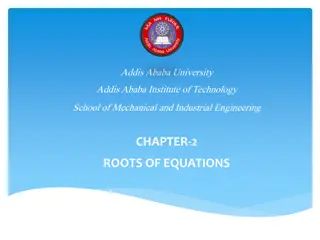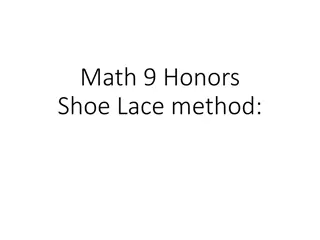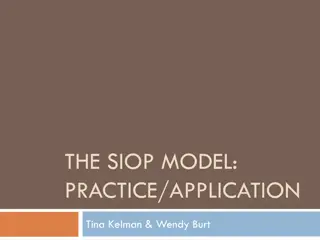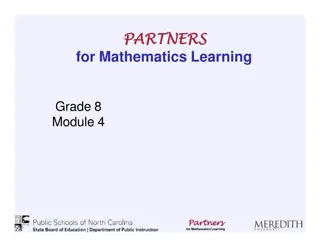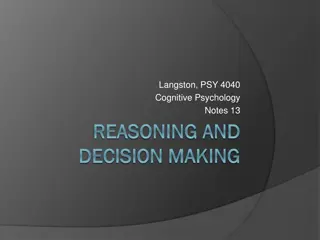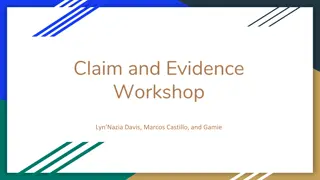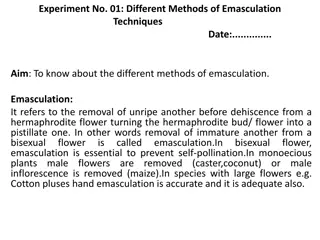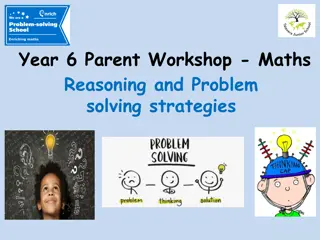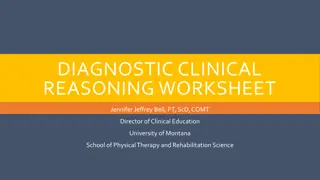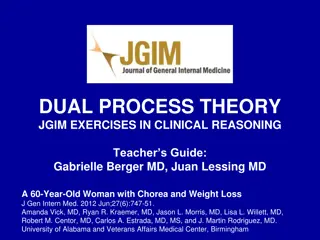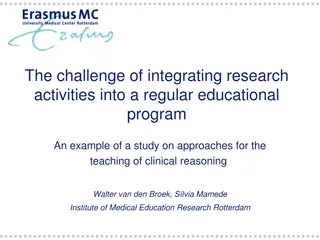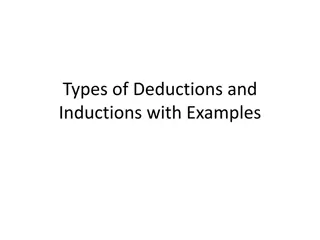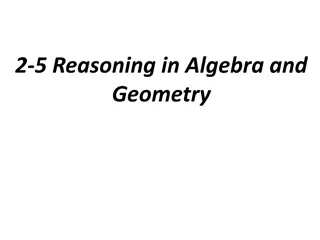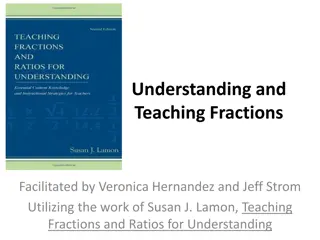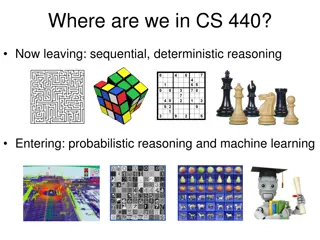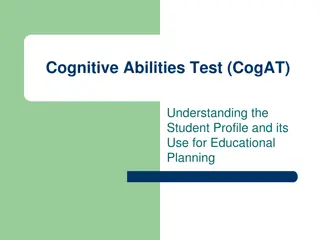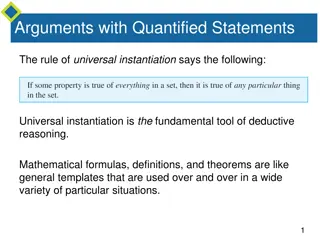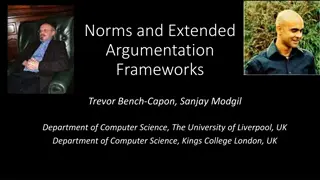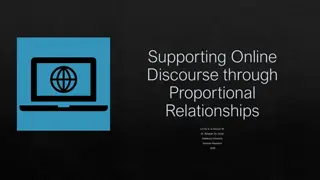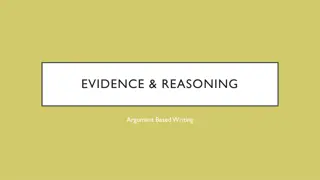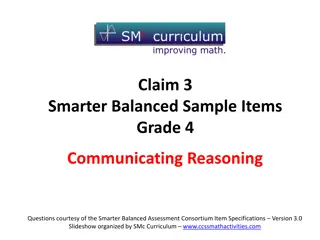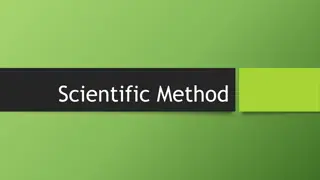Exploring Reasoning as a Method of Knowledge Acquisition
Reasoning serves as a fundamental way of knowing, enabling individuals to transcend immediate experiences, build knowledge, and evaluate beliefs. This process involves the application of logic, examining the interplay between beliefs, ideas, and truth. By integrating reason with imagination, individuals can enhance their understanding of the world and navigate various perspectives within societies. Different types of reasoning, such as inductive and deductive reasoning, offer distinct approaches to drawing conclusions and shaping our perceptions of reality.
Download Presentation

Please find below an Image/Link to download the presentation.
The content on the website is provided AS IS for your information and personal use only. It may not be sold, licensed, or shared on other websites without obtaining consent from the author. Download presentation by click this link. If you encounter any issues during the download, it is possible that the publisher has removed the file from their server.
E N D
Presentation Transcript
REASONING Our capacity to think beyond our immediate experiences We use reasoning to build our knowledge and to evaluate it.
Journal I mean, you could claim that anything s real if the only basis for believing in it is that nobody s proved it doesn t exist. -JK. Rowling How can beliefs affect our ability to reason? Answer and discuss the above quotation
Reason and Logic The method which reason employs in this process is logic and logic is the art of non-contradictory identification
P. 109 Blue Box -The Struggle of Ideas Read the text in the blue box then answer and discuss the following: To what extent is it truly reason that governs what ideas we accept or reject?
Discussion Prompt "Reason is the natural order of truth; but imagination is the organ of meaning." -C.S. Lewis Discuss the prompt and answer the following: How can reason and imagination work together?
Reason notes cont. Our own reasoning grows within the context and perspectives of our societies. Our capacity for reason is born within us, but both HOW we think and WHAT we think are influenced by our place in the world.
Kinds of reasoning Inductive Reasoning -Use particular observations of the world and generalize them to broad statements on common characteristics ex: Scientific Method of Experiments Deductive Reasoning -Take broad statements and apply them to particular cases that we can observe or to other generalizations that we have accepted.
Inductive Reasoning **Particular to General** 1. Start reading on P. 113 Inductive Reasoning and end on p. 116 Uncertainty and Science 2. Answer and Discuss: How much observation is enough to justify an inductive conclusion? When can we say, This is certain and true ?
Discussion Activity P. 114 1. Read and complete the instructions as given. 1. Answer and Discuss the Questions for Discussion
Journal (and get a book) To what extent does all knowledge require some kind of rational basis? Rational: Being reasonable, truthful, conformity of one s beliefs to reasonable facts.
Deductive Reasoning **General to Particular** Drawing conclusions from ideas and information already possessed by combining them in the process of reasoning.
Discussion Activity P. 118-119 1. Complete the task 1. Answer and Discuss the Follow-Up questions
Example of Deductive Reasoning All Dogs are mammals. Fido is a Dog Therefore, Fido is a mammal. The above argument is an example of a Syllogism
Syllogisms Syllogisms are arguments which consist of: Two premises and a conclusion. Three terms, each of which occur twice. Quantifiers, such as all, some, or none.
Premise A premise is a logical assumption applied within an argument or conclusion Ex: All the soldiers wearing Blackhawk uniforms are mercenary soldiers
Truth vs. Validity Discussion Question: What is the difference between Truth and Validity?
Truth vs. Validity Truth: Validity: Is concerned with what is the case Is a property of statements Is concerned with whether conclusions follow from premises Is a property of arguments
Truth vs. Validity The validity of an argument or conclusion is independent of the truth or falsity of the premises it contains. Example: All IB Diploma Programme candidates are purple with pink spots. Brett is an IB Diploma Programme candidate. Therefore he is purple with pink spots. Even though one of the premises and the conclusion are false, the argument is still valid. *An argument may still be considered valid if the premises are false but the conclusion is true. *The only impossible situation is to have a valid argument with true premises and a false conclusion.
Deductive Reasoning Preserves Truth To be sure the conclusion of an argument is true, ask yourself the following: 1. Are the premises true? 2. Is the argument valid?
Make Your Own Syllogisms to Illustrate the Following 1.Two true premises and a true conclusion 2.One true premise, one false premise, and a true conclusion 3.One true premise, one false premise, and a false conclusion 4.Two false premises and a true conclusion 5.Two false premises and a false conclusion
Using Venn Diagrams to determine validity One way to decide if a syllogism is valid is to draw a Venn Diagram. Draw the circles to represent each of the premises and then see if the conclusion is portrayed in the diagram.
Using Venn Diagrams to determine validity Example: All As are Bs. Some As are Cs. Therefore some Bs are Cs. A C B To represent All As are Bs, put the circle of As inside the circle of Bs. To represent Some As are Cs, have the circle of Cs intercept the circle of As. You can now see that if A and C intersect, then B and C must intersect. It therefore follows that Therefore some Bs are Cs, and the argument is valid.
Syllogisms and Venn Diagrams Worksheet Study each of the syllogisms. Draw Venn Diagrams to decide whether they are valid or invalid.
Example All snakes are cold-blooded All snails are cold-blooded All snails are snakes INVALD: Snakes and snails could overlap as categories, but they both could also be in the largest circle without overlapping.
Example All humans are selfish Confucius is a human. Confucius is selfish. VALID: We might not agree that the individual premises are true, but if we accept these premises, the conclusion does logically flow.
Directions: Decide whether the following syllogisms are valid in format. If it is invalid, explain why or illustrate using venn diagram. 1. All human societies are doomed to deteriorate over time. America is a human society. America is doomed to deteriorate over time. 2. No philosophers are evil. All Greeks are philosophers. No Greeks are evil. 3. All women are potential mothers. Betty is a potential mother. Betty is a woman.
4. All students are eligible for student government. No teachers are eligible for student government. No teachers are students. 5. All barbiturates are drugs. Marijuana is not a barbiturate. Marijuana is not a drug. 6. Pizza is a substance made of cardboard. All substances made of cardboard are good to eat. Pizza is a substance that is good to eat.
7. All rational people believe in rule by law. Some rational people are college professors. Some college professors are believes in rule by law. 8. All purple items are green. All yellow items are green. All purple items are yellow. 9. Violent television influences some children in negative ways. Some children are violent. Some children are influenced by violent televison. 10. All red items are blue. All pink items are red. All pink items are blue. 11. Since all robins have two legs, and since all birds are two-legged, it follows that all robins are birds.
12. Laughter is a meretricious act. All meretricious acts are melancholic in nature. Laughter is melancholic in nature. 13. All environmentalists are activists. Some activists are uninformed. Some environmentalists are uninformed. 14. As Emerson said, All the world loves a lover. Now that I think about it, Susan is a part of the world. I am a lover, now that I think about it. Susan must love me! The logic is irresistible! 15. Nothing is better than God. Having a lobster is better than having nothing. Lobsters are better than God. 16. God is love. Love is blind. Ray Charles is blind. Ray Charles is God.
Logical Fallacies Logical Fallacies: An error in terms or reasoning These show us that we can t always rely on reason to give us knowledge. 1.Look over the hand out of logical fallacies. Identify three-four that stand out to you. 2.Create your own fallacy examples to present to the class.
Activity In groups, create a word that has never been heard or used before. You do not do not need a definition for it. You DO DO need to agree on its spelling and pronunciation. When you are done, write the word on the board.
Logical Fallacy Infomercial Reflection What does this activity suggest to you about the relationship between reason and knowledge? between reason and truth?
Reason and Certainty Fallacies show us that we can t always rely on reason to give us knowledge. The conclusions of deductive arguments are no more certain than their premises. Logical Reasoning is based on the following three laws of thought The law of identity The law of identity: : If A, then A. If something is a banana, then it is a banana. The law of non The law of non- -contradiction: contradiction: Nothing can be both A and not-A. Nothing can be both a banana and not a banana. The law of excluded middle: The law of excluded middle: Everything is either A or not A. Everything is either a banana or not a banana. laws of thought.
Lateral Thinking Prison of Consistency: once you have taken a position, you may find it difficult to change your mind without losing face. If we are to escape from the prison of consistency, we must learn to think outside the box. Lateral Thinking: Vertical thinking is digging the same hole deeper; lateral thinking is trying elsewhere. (Edward De Bono)
Logic Puzzles Complete the logic puzzles as provided, be ready to explain your conclusions and reasoning. Have fun!!! :)
Reason Knowledge Questions 1. Can emotion be rational? 2. To what extent should we trust perception over reason? 3. How rational are human beings? 4. What is the relationship between creativity and rationality? 5. To what extent are our beliefs based on evidence? 6. How can vague language lead to bad reasoning?
